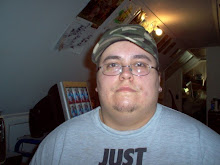
The body
Hiccups happen when the diaphragm, the muscle that controls our breathing, becomes irritated and start to spasm and contract uncontrollably. With each contraction, air is pulled into the lungs very quickly, passes through the voice box, and then the epiglottis closes behind the rush of air, shaking the vocal chords, causing the "hic" sound. The irritation can be caused by rapid eating, emotional stress and even some diseases. The best cure? Breathing into a paper bag. This calms the diaphragm by increasing the amount of carbon dioxide in your bloodstream.
The length from your wrist to your elbow is the same as the length of your foot.
Your heart beats 101,000 times a day. During your lifetime it will beat about 3 billion times and pump about 400 million litres (800 million pints) of blood.
Your mouth produces 1 litre (1.8 pints) of saliva a day.
On average, people can hold their breath for about one minute. The world record is 15 minutes 2 seconds, by Tom Sietas..
The human head contains 22 bones.
On average, you breathe 23,000 times a day.
On average, you speak almost 5,000 words a day - although almost 80% of speaking is self-talk (talking to yourself).
Einstein's brain was of average size (1375 grams - 49oz).
Over the last 150 years the average height of people in industrialised nations increased by 10 cm (4 in).
In the 19th century, American men were the tallest in the world, averaging 1,71m (5'6"). Today, the average height for American men is 1,75m (5'7"), compared to 1,77m (5'8") for Swedes, and 1,78m (5'8.5") for the Dutch.
The tallest nation in the world is the Watusis of Burundi.
If the amount of water in your body is reduced by just 1%, you'll feel thirsty.
Hippocrates, the Father of Medicine, suggested that a woman could enlarge her bust line by singing loudly and often.
A person can live without food for about a month, but only about a week without water.
You'll drink about 75,000 litres (20,000 gallons) of water in your lifetime.
After a certain period of growth, hair becomes dormant. That means that it is attached to the hair follicle until replaced by new hair.
Hair on the head grows for between two and six years before being replaced. In the case of baldness, the dormant hair was not replaced with new hair.
Men loose about 40 hairs a day. Women loose about 70 hairs a day.
In the Middle Ages the length from the tip of the middle finger to the elbow was called an ell.
A person remains conscious for eight seconds after being decapitated.
The first human sex change took place in 1950 when Danish doctor Christian Hamburger operated on New Yorker George Jargensen, who became Christine Jargensen.
The muscle that lets your eye blink is the fastest muscle in your body. It allows you to blink 5 times a second. On average, you blink 15 000 times a day. Women blink twice as much as men.
A typical athlete's heart churns out 25 to 30 litres (up to 8 gallons) of blood per minute.
We have four basic tastes. The salt and sweet taste buds are at the tip of the tongue, bitter at the base, and sour along the sides.
Unless food is mixed with saliva you cannot taste it.
The liver is the largest of the body's internal organs. The skin is the body's largest organ.
Not all our taste buds are on our tongue; about 10% are on the palette and the cheeks.
On average a hiccup lasts 5 minutes.
Fingernails grow nearly 4 times faster than toenails.
It takes about 3 months for the transplanted hair to start growing again.
About 13% of people are left-handed. Up from 11% in the past.
In 1900, a person could expect to live to be 47. Today, the average life expectancy for men and women in developed countries is longer than 70 years.
A newborn baby's head accounts for one-quarter of its weight.
King Henry I, who ruled in the England in the 12th century, standardised the yard as the distance from the thumb of his outstretched arm to his nose.
The bones in your body are not white - they range in colour from beige to light brown. The bones you see in museums are white because they have been boiled and cleaned.
Our eyes are always the same size from birth.
Every person has a unique tongue print.
If all your DNA is stretched out, it would reach to the moon 6,000 times.
Approximately two-thirds of a person's body weight is water. Blood is 92% water. The brain is 75% water and muscles are 75% water.
The coloured part of the eye is called the iris. Behind the iris is the soft, rubbery lens which focuses the light on to a layer, called the retina, in the back of the eye. The retina contains about 125 million rods and 7 million cones. The rods pick up shades of grey and help us see in dim light. The cones work best in bright light to pick up colours.
We actually do not see with our eyes - we see with our brains. The eyes basically are the cameras of the brain. One-quarter of the brain is used to control the eyes.




No comments:
Post a Comment